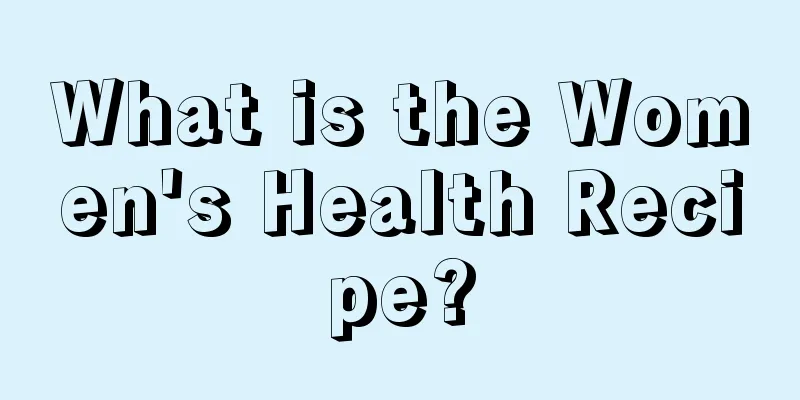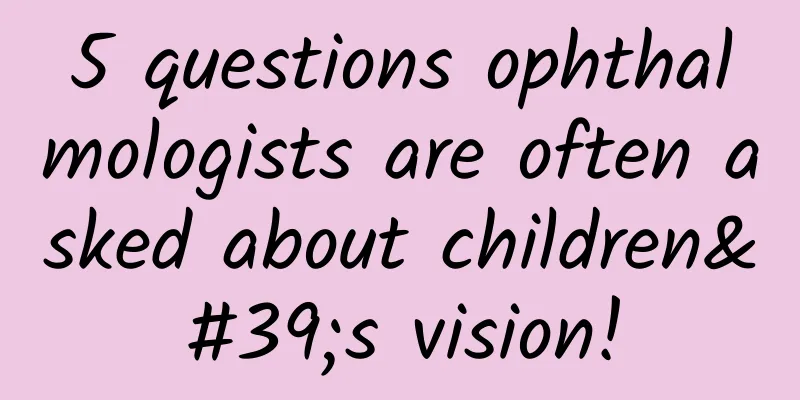[2·4 World Cancer Day] Facing AI, we can do this
![[2·4 World Cancer Day] Facing AI, we can do this](/upload/images/67f1bf632a754.webp)
|
In 2000, in response to the severe situation of the sharp increase in global cancer incidence and mortality, the International Union Against Cancer (UICC) and the World Health Organization (WHO) held the World Cancer Summit in Paris, France to discuss the current status of cancer incidence in the world. They unanimously agreed that international cooperation in cancer research should be established, and the world should be mobilized to participate in the prevention and treatment of cancer so that cancer patients around the world can receive better medical services and support and concern from all sectors of society. They also signed the "Paris Charter against Cancer", which stipulates that February 4 of each year is "World Cancer Day". On this day, popular science publicity on cancer prevention and treatment, rehabilitation publicity and other work should be carried out simultaneously around the world. Cancer is one of the most well-known and feared major diseases. Once diagnosed, patients and their families are on the verge of pain and mental breakdown. The following are answers to five frequently asked questions about cancer in daily psychological clinics and psychological counseling hotlines. Question: When a relative is diagnosed with cancer, should family members tell the patient the truth? Answer: Judgment and notification can be made based on the cancer patient’s usual mental state according to the following four levels of notification. First: patients with fragile hearts. Notice: It is not a tumor. Second: patients who are mentally fragile but need to cooperate closely with treatment. Notice: This is a tumor, but it is benign. Third: For patients who have comprehensive knowledge and are completely unable to conceal their illness. Informed: It is a malignant tumor, but it is in the early stage and can be cured. Fourth level: patients with high cultural level and rationality. Inform: Tell the truth. Q: What should patients do when facing cancer? A: The disease tests both the patient and the family. As a patient, the anxiety is due to the uncertainty about the "future", and this anxiety makes it impossible to make a correct judgment about the "present". To get out of this uneasy mood, you need to reaffirm and understand yourself, think about the importance of daily affairs in life, and sort them out. Treat every day as if it were your last day, do the most important things, appropriately reduce the importance of cancer, "forget" cancer, and don't let cancer occupy all of your life. Try this and you will gradually get out of the anxiety. First of all, we need to correct several major misunderstandings that can cause psychological distress. Myth 1: Having cancer = a death sentence. Use actual successful examples of fighting cancer to encourage yourself, eat regularly, supplement nutrition, exercise appropriately, maintain a good attitude, think positively, and actively cooperate with treatment. You may be the proof of that success story. Myth 2: Having cancer = a burden on the family. It is important to learn to think from other people’s perspectives. Try to ask yourself, “If my family member is sick, what would I do?” Through such self-dialogue, you can actively accept and cooperate with treatment and not let your family down. Secondly, if you can actively cooperate with the treatment and have firm confidence in the treatment, this positive attitude can not only bring more energy to the family members, but also bring more encouragement to other patients in the same situation. You should know that firm belief is the most precious magic weapon in treatment and the best reward for the family members. If you really encounter emotional problems that are difficult to overcome and digest on your own during the treatment process, don't be afraid, communicate more or find professionals to answer your questions. I believe it will definitely help you. Finally, please everyone who is fighting cancer, stay firm in your faith, don’t give up, and persist in treatment. You are the best! Q: How can family members help cancer patients with their emotional states at different stages? Answer: (1) Experience shock period - comfort Most cancer patients are shocked when they first learn of their diagnosis. They become overwhelmed and may even faint, experience symptoms similar to hypoglycemia, and feel a blank mind. At this time, family members need to express emotional comfort and care to the patient, ensure long-term companionship, and maintain appropriate physical contact, such as gently holding the patient's hand or holding the shoulder, etc., so that the patient can feel safe and realize that he is not facing misfortune alone. (2) Doubt and Denial Stage - Step by Step When patients want confirmation of the results, but also want to hear that the diagnosis is not cancer. At this time, family members should not rush the patient to accept the reality, as this will cause him to suffer a greater blow. According to the patient's personality and acceptance ability, they should gradually make him understand and accept the truth. (3) Fearful behavior and physiological response period - solving the root cause When the patient denies the diagnosis but cannot change it, fear will arise, including fear of the disease, fear of pain, fear of changes in social relationships (being away from relatives or friends), and fear of death. The patient will show panic, crying, vigilance, impulsiveness, and anger, and produce a series of physiological function changes such as trembling, frequent urination, urgency, increased blood pressure, shortness of breath, pale skin, sweating, etc. Family members should let the patient describe the process or reasons for his or her fear, and understand what the patient is worried about or afraid of; family members should try their best to understand the relevant knowledge and solutions of this type of cancer, and correct the patient's exaggerated or wrong cognition; find patients or family members of the same type, and increase the patient's sense of security and trust in medical staff by sharing their experiences. (4) The period of fantasy and expectation of miracles – following the emotions After experiencing the painful experience of having cancer, patients have gradually accepted the reality, but they still have fantasies, such as hoping for a miracle, hoping that a new drug will be developed to cure their disease, or hoping that experts can develop a new method to cure cancer. At this time, family members should follow their emotions, support them in fighting the disease, enhance their confidence, improve their coping ability and eliminate panic. Let the patient understand that the possibility of a miracle is increased after each step of treatment. (5) Despair and Resistance Period - Patience When various treatment methods fail to achieve good therapeutic effects, the condition further worsens or serious complications and unbearable pain occur, the patient will lose confidence in the treatment, will not listen to the persuasion of medical staff, family or friends, and will show irritability, provocation, disobedience, and failure to follow the doctor's advice. At this time, family members need to be patient enough to wait for the patient to stop on his own, acknowledge the patient's pain and provide comfort. (6) Calm and Indifferent Period - Companionship When the patient has accepted the reality, his emotions are stable, he is obedient, cooperates with the treatment, and is no longer afraid of death. But this is only the positive side; on the other hand, the patient is in a passive state of coping, indifferent, no longer considers his obligations to his family and society, focuses on his symptoms, feels helpless and numb. As relatives and friends, helping patients find the most important thing in life and helping them accomplish it together may be the most important thing to do. Paying too much attention to the changes in his condition will make cancer the most important or only thing in the family. At this time, family members should maintain close companionship with the patient, understand and meet some of the patient's inner needs. Family members should also pay attention to distinguishing between symptoms of indifference and depression, and avoid the emergence and aggravation of depression leading to some extreme behaviors. Pay attention to relevant information, provide hopeful information to patients, and make decisions and bear together with patients. Question: How do family members of cancer patients adjust their psychological problems? Answer: When cancer suddenly strikes, it is difficult for both the patient and the patient's family to accept it. As a family member, accompanying your loved ones to fight the disease, witnessing your loved ones suffering but unable to do anything, that feeling of helplessness is actually the most tormenting. At the same time, due to the unknown future, you have to bear the anxiety that your loved ones may leave at any time, as well as pressure from society, economy, family, work and other aspects. It is inevitable to have fear, anxiety, depression, loneliness, etc. Studies have shown that 87% of the family members of patients experience varying degrees of psychological pain after learning of the diagnosis of cancer, which is higher than 74.7% of tumor patients. Family members are the spiritual and emotional pillars of patients. The emotional changes and physical and mental health of family members are the prerequisites for providing family support and social support to patients, and play an important role in improving patients' compliance with treatment. In the process of accompanying patients in treatment, family members should try to take the following measures to regulate their emotions. (1) Actively respond. Family members should think about whether being pessimistic will not change the condition. However, if they have a positive attitude, it will not only enhance their own confidence in coping, but also bring more positive energy to the patient, allowing him to fight the disease more bravely. (2) Divert attention. Divert attention from sad emotions to indoor and outdoor exercise, nutritious meals, etc. You can exercise with the patient to maintain or enhance the physical condition to cope with various situations that may arise later. (3) Communicate more with medical staff. Information exchange is a very important part of communication. Family members can obtain information about treatment effects, nursing knowledge, treatment costs and time, and patient safety during communication, which can reduce anxiety and uncertainty caused by lack of information and thus adjust negative emotions. (4) Self-study the necessary knowledge. All fears come from the unknown. Family members can learn relevant disease knowledge on their own. Although they may not be able to gain comprehensive and in-depth knowledge, the more they learn, the more anxiety and fear they will feel. In addition, learning relevant treatment and rehabilitation knowledge can help patients better. (5) If you are unable to adjust on your own, seek help from professionals. Q: There is a saying online: One-third of cancer patients die of fright. Is this statement correct? Why? A: Although this statement is a bit exaggerated, it tells us that psychological factors have a great impact on the effect of cancer treatment. Researchers have found in animal experiments that stress has an impact on tumor growth and cancer cell spread. Recent neuropsychiatric immunology research shows that psychological imbalance can cause changes in the mind, nervous system, immune system and endocrine system through the brain; modern medicine has even recognized that tumors are a kind of "psychosomatic disease". A very famous death row blood experiment tells that a certain experimental scientist gave a death row prisoner two choices before his execution: hanging or bleeding to death. The prisoner chose the latter. So the scientist blindfolded him, scratched the back of his hand with the back of a knife (actually not cut), and let warm water flow through his skin, giving him the illusion that he was bleeding. After a while, the prisoner died sadly without suffering any substantial harm. From the medical data, negative and fearful psychology does accelerate this process. In the process of cancer treatment, this principle also applies. We can simply understand that the body is "resisting" the treatment. The treatment effect decreases, and the cancer condition becomes difficult to control, leading to accelerated death. Hopefully, the above common cancer consultation questions and answers from daily psychological clinics can help patients and their families who are fighting cancer. END Author: Wang Huiqiu, Director of the Rehabilitation Center of Shenyang Anning Hospital, Executive Deputy Director of Shenyang Mental Psychological Rehabilitation Clinical Medicine Research Center, Social Psychological Occupational Expert of the Occupational Therapy Professional Committee of the Chinese Rehabilitation Medicine Association Editor: Wu Qikai Xinhua Hospital Affiliated to Shanghai Jiao Tong University School of Medicine Illustration: Li Chuan Xinhua Hospital Affiliated to Shanghai Jiao Tong University School of Medicine The popular science content of this platform has been funded by the China Association for Science and Technology's Science Popularization Department's 2022 National Science Literacy Action Project "National Society Science Popularization Capacity Improvement Project-Rehabilitation Science Popularization Service Capacity Improvement Action Plan" |
Recommend
Can the residue be removed without bleeding?
When it comes to intrauterine residue, I believe ...
What are the diet recipes after miscarriage
The body of a pregnant woman is very fragile afte...
Counterpoint: Global smartphone market to grow 4% in 2024, demand for models priced above 1,000 yuan surges
What is your budget for replacing a new phone now...
Can I eat potato chips during my period?
Potato chips are often eaten in our daily life, a...
How to take montmorillonite powder correctly for summer diarrhea
In the hot summer, intestinal pathogens multiply ...
The woman twisted her neck a few times due to pain
The cervical muscle tendons are the source of our...
9 signs to remind women to detoxify
If you have the following nine problems in your l...
How to drive away the cold after childbirth
Women should pay attention to their body's re...
Does dysmenorrhea need treatment?
Dysmenorrhea is something that many women experie...
How many steps are needed to “eat” a dragon?
The dragon has a special meaning in my country. I...
Four things to do to prevent gout
One morning, my father suddenly felt pain and swe...
What to do if the vaginal opening is too large
Just as older people may have loose skin, a woman...









